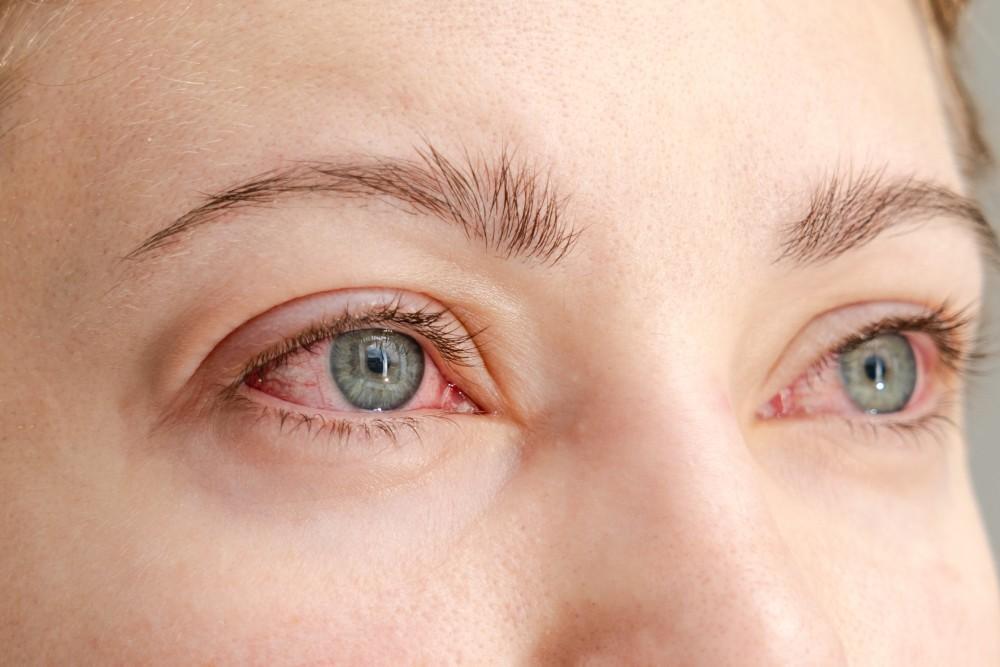
7 Signs of Dry Eye

Dry eye syndrome is a common eye condition affecting up to 50% of the global population.
Despite the name “dry eye,” dry eye syndrome causes much more than just a sensation of dryness. Left untreated, dry eyes can contribute to corneal abrasions, decreased quality of life, and overall eye discomfort.
Dry eye syndrome is treatable, but the specific treatment you need depends on what’s causing your eyes to lose moisture and lubrication. Nicanor Lacsina, O.D., and Yelena Pinkhasova, O.D., are experts in diagnosing and treating dry eye syndrome. The first step, though, is to learn to identify the signs of dry eye.
Here are the top signs that you’re dealing with dry eye syndrome.
1. Eye discomfort
There are many reasons your eyes may hurt 一 even headaches can cause eye pain! However, eye pain due to dry eyes creates a specific type of discomfort. Many people describe it as a stinging or burning sensation. You may also experience a scratchy sensation in your eyes.
2. Increased sensitivity to light
Dry eye syndrome affects your cornea. Your cornea is the clear, outer layer of your eyes and the first entry point for light. If your cornea isn't adequately lubricated, exposure to any light can cause increased sensitivity and discomfort.
3. Eye redness
When you have dry eyes, either your eyes don’t produce enough tears, or they produce poor-quality tears. In some cases, it may be a combination of both. Regardless, the lack of moisture can lead to eye inflammation and irritation, which makes your eyes appear red.
4. Sensing something is in your eyes
You notice immediately if an eyelash or a speck of dirt gets stuck in your eye. Your eyes are extremely sensitive, and dry eyes can replicate this feeling. If you feel like you have something in your eyes, it can be a sign of dry eye because you don't have enough tears to flush out even small specks of dust and debris.
5. Difficulty wearing contact lenses
If you notice that wearing your contacts has become more uncomfortable lately, you might be dealing with dry eye syndrome. While you can wear contacts with dry eyes, the condition makes wearing contacts more difficult. If wearing contacts aggravates your symptoms, don’t hesitate to contact us.
6. Difficulty with nighttime driving
Dry eye syndrome can also affect your nighttime driving. Dry eyes can give you blurry vision but also contribute to increased glare from headlights, street lights, and street lamps.
7. Watery eyes
This last sign of dry eye syndrome is the most surprising. Many people with dry eyes also struggle with watery eyes, which may seem contradictory, but this is how your body responds to dry eyes. When your eyes are dry, your lacrimal glands produce tears to help combat the situation. However, there are two issues here. One, lacrimal glands produce so many tears that it overwhelms the natural drainage system of your eye. Two, these tears are watery and don’t contain the right mixture of oil and mucous 一 a natural part of your tears.
Treating dry eye syndrome
Suspect that you’re dealing with dry eye syndrome? Dry eyes can be frustrating to deal with on your own, but the team here at Bainbridge Eye Care wants you to know that dry eyes are manageable. For over 20 years, we have provided innovative and advanced dry eye care to those in the Norwood neighborhood of the Bronx, New York City.
Depending on the cause of your dry eyes, our team may recommend:
- Medication, including prescription eye drops, such as Restasis®, Xiidra®, and Cequa™
- Punctal plugs, including both dissolvable and semipermanent plugs
- Prokera®, an FDA-approved device to heal damaged corneal tissue
If you would like to explore your potential dry eye treatments, don’t hesitate to reach out to us. Schedule your next visit by giving us a call at 718-306-9127. You can also request an appointment online.
You Might Also Enjoy...


5 Signs You Need a New Corrective Lens Prescription

Eye-Friendly Habits You Can Start Today

Vision Changes with Age: What’s Normal, and What’s Cause for Concern?

Understanding How Diabetes Can Diminish Your Ocular Health and Impair Your Vision

